Your Complete Pest Control Solution
PestGuard Signature is our most popular package, offering protection from pests like ants, spiders, and roaches, as well as mosquito & flea coverage!
- Protection From More Than 30 Pests
- Mosquito, Flea, & Tick Coverage
- Quarterly Service with 100% Satisfaction Guarantee
- Same Day Service Available
- Emergency Service Available
Helpful information detailing your pest concerns and the best pest control methods.
DIY methods of ant control
While the most effective way to prevent or address an ant infestation is to call in pest control professionals, you can also try these do-it-yourself methods:
- Place natural repellents like coffee grounds, peppermint oil, and lemon in areas where ants are likely to enter. This will keep ants at bay, but will likely not resolve the source of an ant problem.
- Clean with a solution of equal parts water and distilled white vinegar, which ants dislike.
- Poison ants with bait stations or topical solutions from a home supply store. Ideally, the worker ants will take the poison back to the queen and eradicate the colony. However, in many cases, the workers die before they ever get back to the nest, so the poison doesn’t make it to the source of the problem.
What can you do to prevent ants from settling in your home?
Ants are driven by a search for food, water, and shelter. While it may be impossible to stop every ant, following some basic guidelines can help prevent an invasion:
- Avoid leaving food, dirty dishes, or food particles where ants can get to them. Though they aren’t very selective, most ants are drawn to sugary, fatty, or greasy foods.
- Use gap sealant or caulk to seal cracks and openings around windows, doors, and pipes so ants can’t enter your home.
- Remove debris, rotting logs, and lumber from your yard.
- Repair leaks and dry out moist areas in your home.
DIY Flea Treatment
Once you’ve spotted a flea, act quickly! The presence of a live flea means there are likely eggs and pupae nearby. Most do-it-yourself solutions target adult fleas but do not prevent those in earlier stages from developing. To minimize the spread of fleas, follow the preventative steps we’ve outlined. However, a flea problem can be difficult to control, so your best bet is to hire a professional exterminator.
Flea Prevention Tips
Fleas multiply quickly, so the best way to manage an infestation is to stop it before it happens. These guidelines can help keep your family, pets, and home free of fleas:
- Apply a monthly topical flea-repelling treatment to your pet, as prescribed by a veterinarian.
- Regularly vacuum your home, especially areas where fleas may be hiding.
- Wash pet bedding in hot water.
- Keep animals away from areas suspected or known to be flea-infested.
- Bathe pets as directed by your veterinarian.
- Treat your yard with insecticides designed to kill fleas. (Better yet, hire a pest control professional to do this for you!)
How To Treat Flies
Many off-the-shelf DIY products are designed to target the variety of fly species. Use these remedies with caution, as they can be harmful to your family and pets if applied incorrectly. Do-it-yourself solutions often only treat adult populations; therefore, you should plan on re-treating as eggs hatch and larvae develop. If you experience a problem with flying insects, a pest control professional can identify the type of fly and treat it appropriately at all stages of its lifecycle.
How to Prevent Flies
Flies are everywhere! While it will be difficult to avoid them entirely, these guidelines can help reduce your interaction with these pests:
- Install fine mesh screens on windows and doors or keep doors and windows shut.
- Clean up food particles, pet waste, and spilled or spoiled food and beverages immediately.
- Secure lids on trash bins and clean up trash overflow.
- Maintain a clean home.
- Cover food being prepared or eaten outdoors.

DIY Treatment
If voracious grasshoppers have invaded your garden, it can feel like your plants are being damaged and consumed everywhere you look. Luckily, there are several natural ways to bring your garden back to life and protect your plants from further harm. Here are some of our favorite home remedies:
Dust Your Plants With Flour – this method is a quick and convenient way to get rid of grasshoppers destroying your plants. Flour causes grasshoppers to starve by gumming their mouths and preventing them from being able to eat. Be sure to use all-purpose flour for the best results and simply sprinkle a thin layer over any affected plants.
Apple Cider Vinegar – as a simple pantry item with so many beneficial uses, it’s no surprise that apple cider vinegar is also a great solution for fighting off grasshoppers. We recommend placing disposable cups or open freezer bags filled halfway with vinegar and placing them throughout your garden beds. Grasshoppers are immediately drawn to the solution and drown in the vinegar.
Introduce Natural Predators – one of the best ways to tackle an overactive grasshopper population for the long-term is by introducing some of their natural predators to your landscape. In particular, praying mantises, birds, cats, and chickens are some of the most effective predators when it comes to eliminating your grasshopper problems.
Steps to Prevent Them
The best way to avoid having your landscape ravaged by grasshoppers is by taking measures to keep them from wanting to inhabit your garden at all. Here are the grasshopper prevention methods we recommend the most:
- Garlic Spray is an easy and inexpensive way to deter grasshoppers from feeding off your plants. You can either make your own solution at home by blending two cloves combining with water in a spray bottle – or a purchase a ready-made solution here.
- Adding grasshopper-repelling plants to your landscape is one of the best ways to prevent them from inhabiting your yard in the first place. Plants like the Chinese brake fern, horehound, calendula, and cilantro naturally deter grasshoppers from your garden due to their strong scent and off-putting taste. Not only will these plants help enhance the bounty of your landscape, but they’ll also keep a variety of menacing bugs from feeding off your garden!
DIY Mosquito Treatments
Some do-it-yourself treatments may help manage small mosquito populations:
- Apply an over-the-counter insecticide. These will kill mosquitoes on contact, but will not prevent new ones.
- Add bacteria called bacillus thuringiensis israelensis (or Bti) to water where larvae are found. Bti produces proteins that become toxins once ingested by the larvae.
- Place mosquito traps in infested areas. These traps are capable of killing thousands of mosquitoes per day.
- Avoid bug zappers. While these machines kill other types of insects, they have proven to be ineffective for mosquito problems.
Mosquitoes pose a serious health hazard and should be professionally treated if found in large numbers.
Mosquito Prevention Tips
Multiple preventive techniques can be employed to keep mosquitoes at bay.
- Keep standing water to a minimum. Stagnant pools of water, even in small amounts, offer excellent breeding grounds for mosquitoes. Bird baths, toys, gutters, non-chlorinated pools, plant containers, and poorly-drained lawns are all potential havens for mosquitoes.
- Repair torn screens and close gaps where mosquitoes can enter your home.
- Add mosquito-repelling plants like citronella or the lemon-scented geranium to your landscape.
- Use fans to break down carbon dioxide and blow mosquitoes away.
- Add gambusia fish (also called mosquitofish) to ponds. They feed on mosquito larva.
- Wear clothing and shoes to cover exposed skin.
- Burn pinion wood in your outdoor fire pit. Mosquitoes do not like its smell.
- Sprinkle used coffee grounds in standing water. They force mosquito eggs to the surface, depriving them of necessary oxygen.
- Use red cedar mulch or chips in your yard.
- Apply an insect-repelling spray or lotion that contains DEET, lemon-eucalyptus oil, or picaridin.
- Hang a bat house to attract bats to your yard for natural mosquito control, as a single brown bat can eat up to 1,000 mosquitoes in one hour.
DIY methods of rodent control
Do-it-yourself baits and traps may attract rodent intruders. However, if not properly administered, they can also be harmful to people and pets. A pest control professional can evaluate your property to determine how to best prevent and treat pesky rodents.
Prevention
Rodents are most harmful when they find their way into your home. Preventative measures you can take to keep your home free of rodents include:
- Blocking potential entry and exit points
- Keeping your home and its surroundings clean
- Storing food in airtight container
- Removing clutter and debris
- Pruning trees and shrubs away from your home
DIY methods
Do-it-yourself spider treatments can be ineffective and potentially toxic to people and pets if not administered correctly. With so many varieties, it can be difficult to determine whether a spider is potentially harmful or helpful. The best way to prevent or address a spider infestation is to contact a pest control professional who can identify the type of spider and the most effective approach to treat them.
Spider prevention
Spiders are ubiquitous and hard to eliminate completely. However, preventative measures can be taken to minimize spiders in and around your home:
- Eliminate or reduce clutter.
- Exterminate insects that might attract spiders.
- Seal off possible points of entry.
- Turn off outdoor lights.
- Minimize outdoor debris and other potential hiding areas.
- Use natural spider-repellent oils like peppermint, citrus, eucalyptus, cinnamon, cloves, or tea-tree.
- Plant herbs – including basil, lemongrass, mint, rosemary, and lavender – that keep spiders away.
DIY Methods
Insecticide sprays designed for bees, wasps, and hornets can be effective when they make contact with the insect. However, they can also irritate a nest, causing it to become more active. Also, bees are important pollinators that help our crops grow, but they are on the decline worldwide. It is advisable not to kill the bees if possible. Because of the high degree of danger associated with stings, the best way to handle a bee, wasp, or hornet issue is to contact a licensed pest professional who can remove or relocate the nest.
Stinging Insect Prevention
Bees, wasps, and hornets can be good for the environment but, in large numbers, they may introduce risk to your family and property. The simple guidelines below can help you avoid a bee or wasp infestation or sting:
- Do not wear yellow or white outdoors as these colors attract insects.
- Ensure screens on windows are secure and tight.
- Inspect your property regularly for hives or nests.
- Do not engage with bees, wasps, or hornets.
DIY Tick Treatment
Should you find a tick on a person or animal, the most effective way to remove it is by using pointy tweezers. Using the tweezers, grab the tick’s head as close as possible to the host’s skin and pull. This will lessen the potential for harmful germs to be forced into the host. Wash the affected area with soap and water or alcohol and apply an antibiotic cream. If you or your pet develops any unusual symptoms, visit a doctor or veterinarian. A professional tick treatment is a powerful option for tick control.
Tick Prevention Tips
Unless you spend all your time indoors, you are likely to encounter an area in which ticks live. The following guidelines can help protect you from becoming a host to these parasites:
- Have your yard professionally treated for ticks.
- Apply a tick repellent that contains 25%-50% DEET.
- Wear clothes treated with permethrin.
- Tuck in loose clothing, like pant legs or oversized shirts.
- Run clothes worn outside through a dryer cycle.
- After being outside, check your body and hair thoroughly for ticks.
- You should also regularly check pets, whether they live inside or out, for ticks.
![]()
Starting at $79.95/month!
*Initial Fee Applies
Sign Up For PestGuard Today and Save $50 on Initial Fee!
Year around protection for your family & home
- 30+ Pests Covered
- Mosquito, Flea & Tick Coverage
- 100% Guaranteed
- Same Day Service Available
- Emergency Service Available
For Our Signature

Get Comprehensive Coverage
Upgrade Your Plan to PestGuard Elite to get comprehensive coverage from pests, termites, mosquitoes, fleas, and ticks.
To Start Protecting Your Home From All Pests!
Testimonials
Best decision hands down, great customer service, and affordable. My tech Jose Rosario is very knowledgeable and keeps me updated during his visit considering I have a multi family house. Highly recommend!
HOW DOES PESTGUARD SIGNATURE TREATMENT WORK?
We will treat the inside and outside of your home with environmentally-friendly products to eradicate pest infestations and prevent new ones from occurring. Learn more about the details of this package:
![]()
- Quarterly Exterior Service
We will inspect for rodent entry points, clean webs and other debris from the home, inspect for conditions conducive to pest activity, and provide an exterior treatment appropriate for the season every quarter to ensure pests don’t make it into your home at any point throughout the year.
- Annual Interior Service
Our interior service includes inspecting the attic, basement, garage, kitchen, and other areas of the home, treating annually to ensure your home has remained pest free from the quarterly exterior services!
- Mosquito & Tick Treatment
In addition to interior and exterior pest treatments, we will inspect your yard for any conditions conducive to mosquito and tick activity and apply a misting treatment to all foliage and underbrush on the property where mosquitoes and ticks are likely to rest during the day.
- Flea Coverage
If fleas ever make their way into your home, this plan has you covered. In order to eliminate a flea program, we will treat the full interior of your home to prevent continued activity.
LEARN MORE ABOUT PESTGUARD SIGNATURE
Your complete pest control solution
We believe that prevention is just as important as treatment. Our signature PestGuard Signature Pest Control service targets pest entry and exit points for maximum effectiveness. In addition to providing you with the peace of mind that comes along with a healthy, pest-free home, our friendly professionals will also alert you of the conditions in your home or yard that might be attractive to pests.

Is it safe for your family?
By choosing our PestGuard Signature pest control service, you will be protecting your family from pests, without the risks that go along with traditional treatments. Our Quality Pro certified technicians use an Integrated Pest Management (IPM) approach to fully eliminate your unwanted pest populations. It’s a prescriptive approach that only targets where necessary to ensure your home isn’t being treated with unnecessary chemicals. Through detailed inspections and targeted treatments, we are able to assure you that your loved ones will be able to enjoy a comfortable home. Learn more about our PestGuard terms and conditions.
Is PestGuard Signature affordable?
We think so. After all, there wouldn’t be much value in our service if you didn’t feel as though it is accessible. Our goal is to provide you with the best possible service at the lowest cost.
Want to cover all your bases? Protect your home with our comprehensive coverage!
Upgrade to our PestGuard Elite package! It includes everything from our PestGuard Signature service, plus protection from termites. Protect your family with interior and exterior PestGuard Elite coverage!
Learn More Now
Become Pest Free Today!
Call 508-406-9233 or send our FREE quote request form to start protecting your home and family today!
If, in the unlikely event your pests return, we will re-service your home for no additional cost to you. No questions asked. We guarantee it.
















